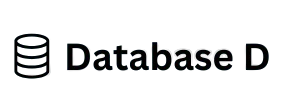The future The topic of human skills is very, very fundamental. Seeking out more curious people basically means that specific and in-depth knowledge on certain topics will lose value over time, in the future of work.
In Ian Beacraft’s (futurist, strategist and AI expert) talk, he highlighted that 99% of the internet has already been mapped. Therefore, all knowledge is already on the internet. Knowing something is no longer as valuable as knowing how to connect knowledge.
In what sense?
More important will be people who are able to connect different knowledge and bring it to the table in a way that solves real problems. The beauty of email list human intelligence is being able to connect these different parts and put them together. That’s why curiosity is so important, as is the ability to learn new things – and these are very basic human skills.
And the role of artificial intelligence in this process?
It acts as an enhancer. Here, the artificial intelligence enhances human intelligence. And organizations and Human Resources have the surprising power of silence the mission of decoding the knowledge base within companies. In his speech, Ian also highlights that only 1% of companies have managed to decode this knowledge within their own organizations. Today, this information is easier to access. It is up to HR to identify which data points it can connect to solve problems and propose new ideas within the company.
Has there been a change in the discourse around the use of artificial intelligence between the first time you went to SXSW and this year’s edition?
This is my second time at SXSW, and in 2023, ChatGPT had just launched. At that year’s edition, artificial intelligence dominated the agenda, and the conversations were more about what was going to happen and what this technology would transform.
This year, I saw a much greater balance between bermuda businesses directory the topics of “where technology is evolving” versus “how humans are in relation to this technology”, and many others about what people are doing to not only consume this technology, but to make the best use of it for their productivity. And there was a very strong health bias too, especially from the point of view of social health.
How can we define this social health?
On the first day of SXSW, one of the sessions that caught my attention the most was by Kasley Killam (an American social health expert), who discussed the future of social health. We have three pillars of health: physical, mental and social, which refers to caring for relationships.
Social health is our ability to connect as a community and build together. According to Kasley, one in four people is living or experiencing loneliness for some reason.When describing the 9 trends for HR in 2025, Harvard Business Review places loneliness in eighth place as a business risk or a corporate risk – and not just a challenge, an obstacle to employee well-being.
Companies are increasingly encouraging employees to come to the office in person, fostering these face-to-face exchanges. How does this work at Flash and what benefits do you see?
We’ve been going to the office twice a week, and we’ve noticed a lot of new conversations happening when these visits are intentional. No one wants people to go to the office and then sit in a corner all day with their headphones on. Being there means being in contact with teams with whom you have greater synergy, and this exchange tends to bring new insights and new ideas.
